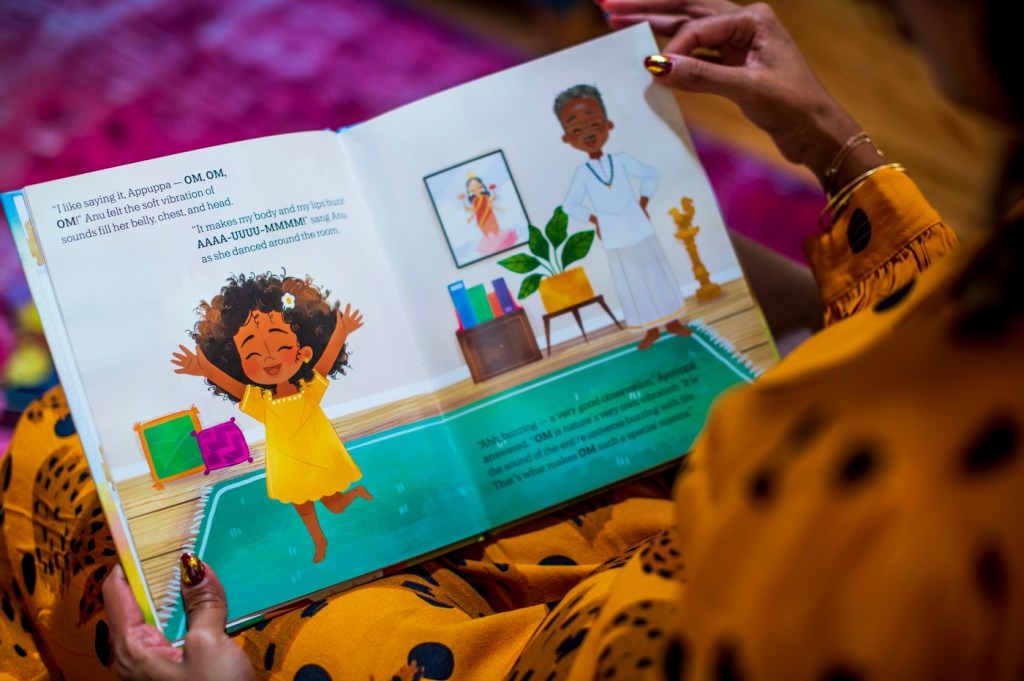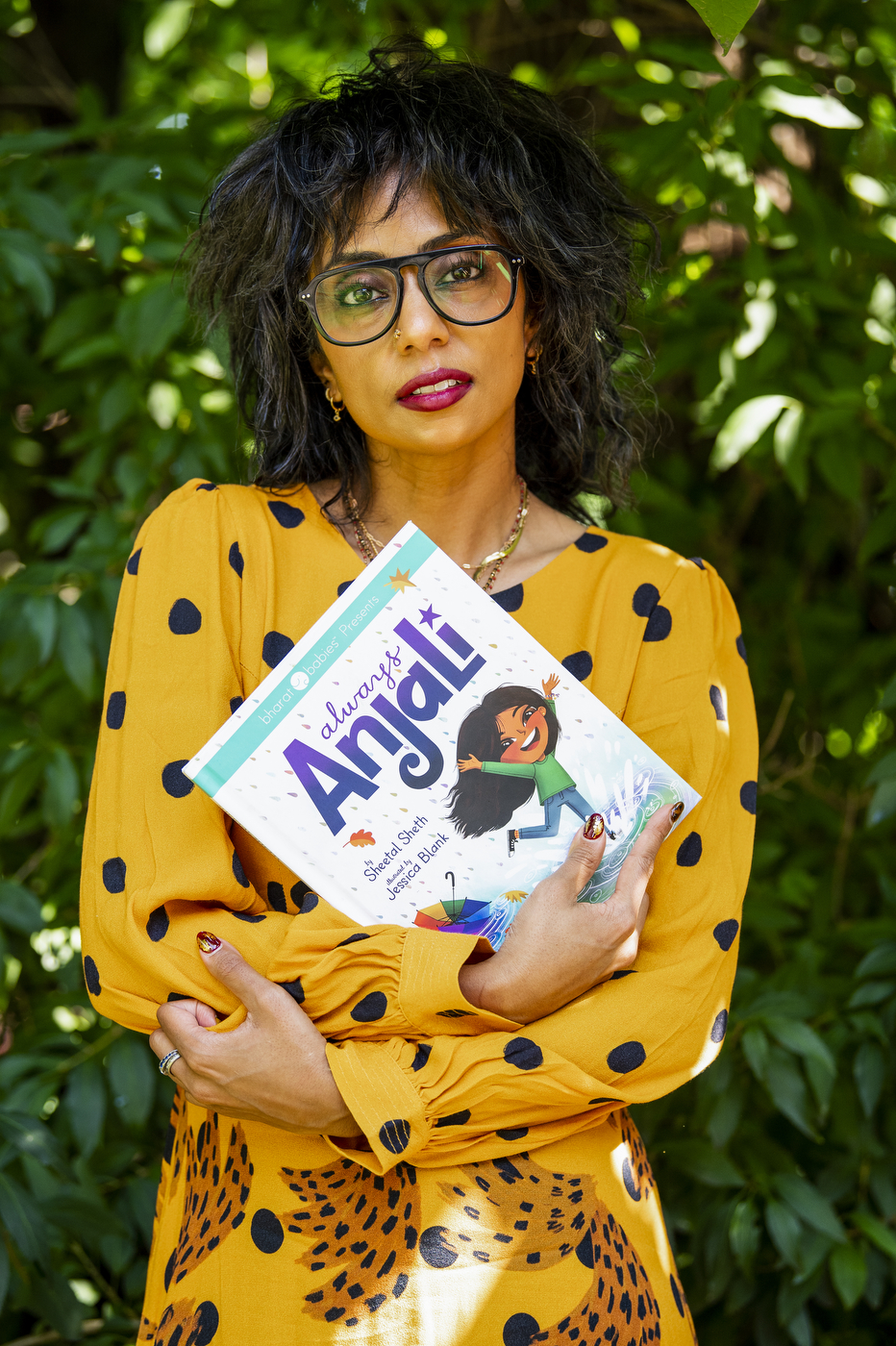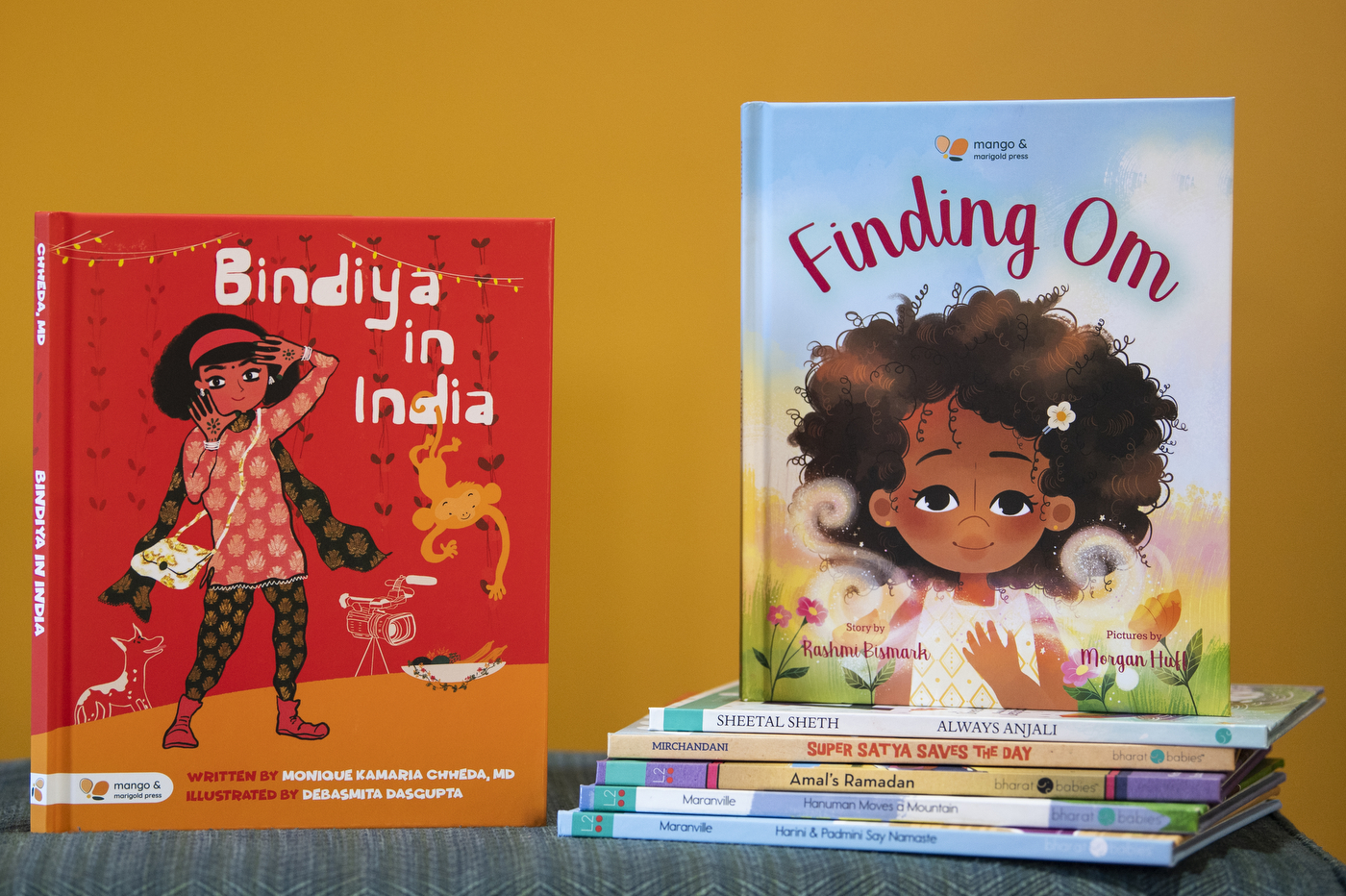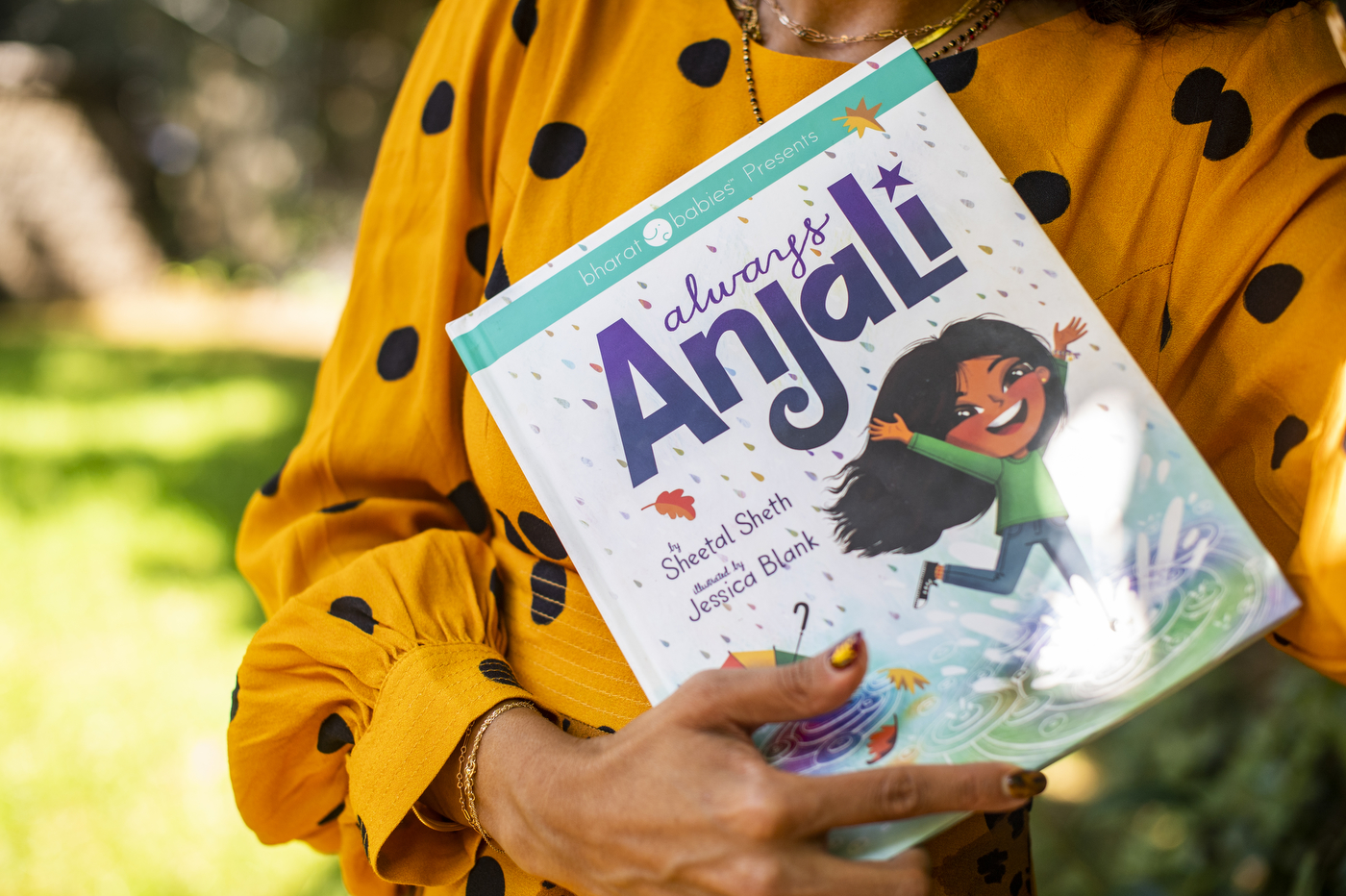The pandemic shut down local bookshops. So she gave away the children’s books she published.

Sailaja Joshi, who earned her international business degree from Northeastern in 2006, was deeply unsure how her children’s book publishing company would survive when the pandemic shut down schools and bookstores.
Mango & Marigold Press is a calling for Joshi, who founded the company because she wished she’d been able to read about Black or brown protagonists like herself when she was a child. But in early 2020, companies like Amazon were focused on delivering masks and medical supplies, and parents were facing potential layoffs and home-schooling.
“There was this immense moment where I was like, ‘What are we going to do to help this situation?’ And I realized, all I got are books,” says Joshi. “I didn’t have any money. All I had were books. So we put a call out, asking for educators, parents, or community organizers who needed books.”

CEO and Founder of Mango and Marigold Press Sailaja N. Joshi, who got her international business degree at Northeastern in 2006, poses for a portrait at her home. Joshi’s business ensures more Black and brown protagonists are in children’s books. Photo by Alyssa Stone/Northeastern University
Joshi estimates she gave away 2,000 illustrated stories for children and pre-teens in 2020. The books feature main characters like Rea in “Rea and the Blood of the Nectar,” written by Payal Doshi. The tale is about a 12-year-old girl’s quest for her missing twin brother in Darjeeling, India.
“I thought about the word gap, and how that affects communities that have been economically marginalized by the system. And I realized that that was going to be one of the ways that I could help,” says Joshi, referring to a study that found children of wealthier families hear a far broader vocabulary by the time they’re 3 years old than children from poor families.
But Joshi still had to maintain sales to ensure the company survived, and the hurdles didn’t stop with shuttered bookstores. The cost to print and ship books skyrocketed, along with the timeline to publish them, which was at least 30 percent longer.
“I have printers who would just up and cancel the order three weeks before they’re supposed to be on the printer. It’s a nightmare,” she says. The mother of two hasn’t taken a salary from the company, her second job, since she founded it six years ago.
“It’s an exhausting road but at the same time, we have been in the national news and the local news, and I continue to push and I continue to advocate because I deeply, deeply believe in the value of what we bring,” says Joshi. “I believe in the power of the written word, and that it can change and transform a generation, and so I continue to do what I do.”
Joshi started a pre-order campaign in the summer of 2020 which helped her grow the business despite consistent issues with supplies and production.
“I was just stubborn. I refused to believe that a global pandemic was going to bring down my business, so instead I doubled and tripled down on my effort to make it a success,” says Joshi.


Joshi has had to maintain what she calls her “audacity,” even as many bookstores have re-opened.
“Bookstores are still doing less, they’re ordering less, they are doing less events, and they’re doing even less virtual events, because everyone is fatigued,” she says.
“We just keep trying to pivot, but that’s like a pivot every six weeks. It’s really, really hard right now. But I’m still going.”
The reason she’s still going, says Joshi, is because she believes these books are vital for the next generation.
“When I started the company, there were books out there that were culturally inaccurate and culturally insensitive. I took offense, frankly, to some of the visual depictions,” says Joshi. “Children deserve the best, they deserve to read the best and see the best.”
For media inquiries, please contact media@northeastern.edu.





